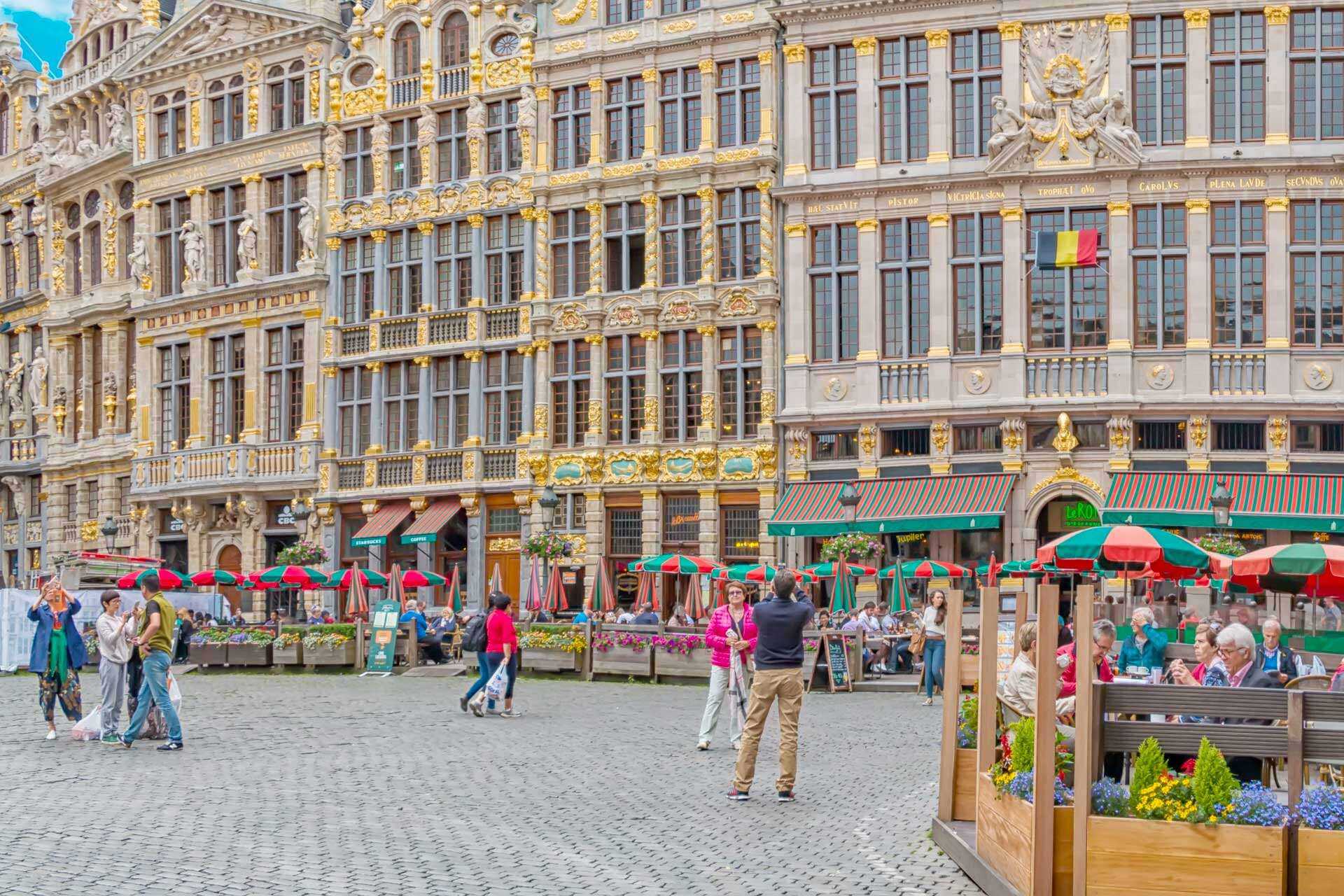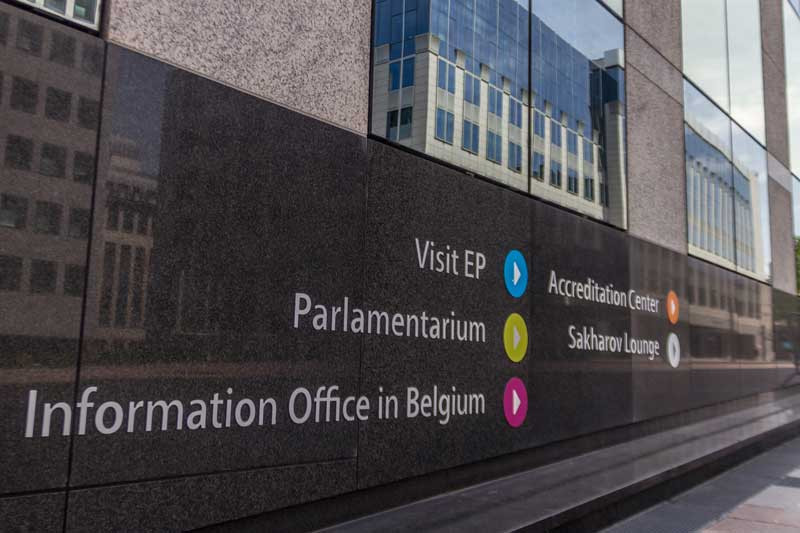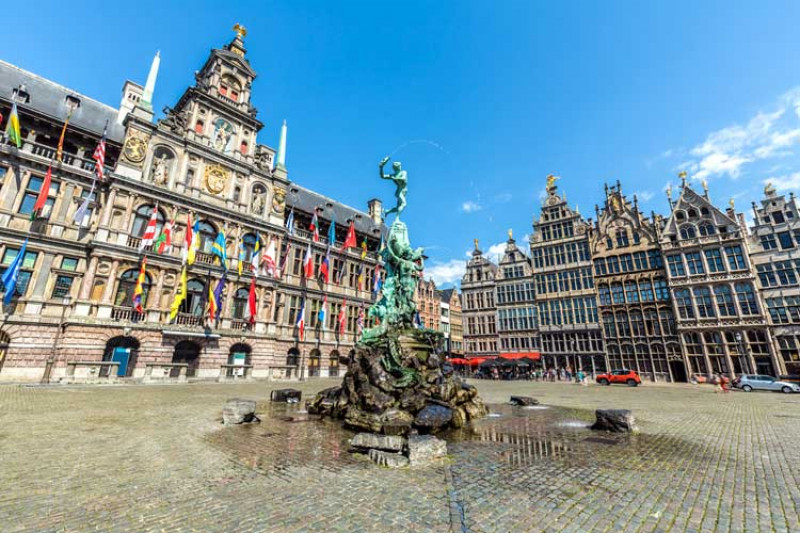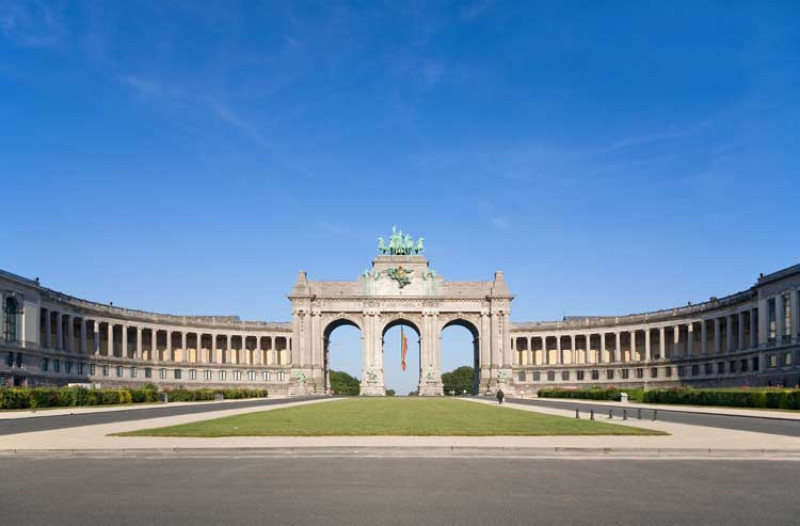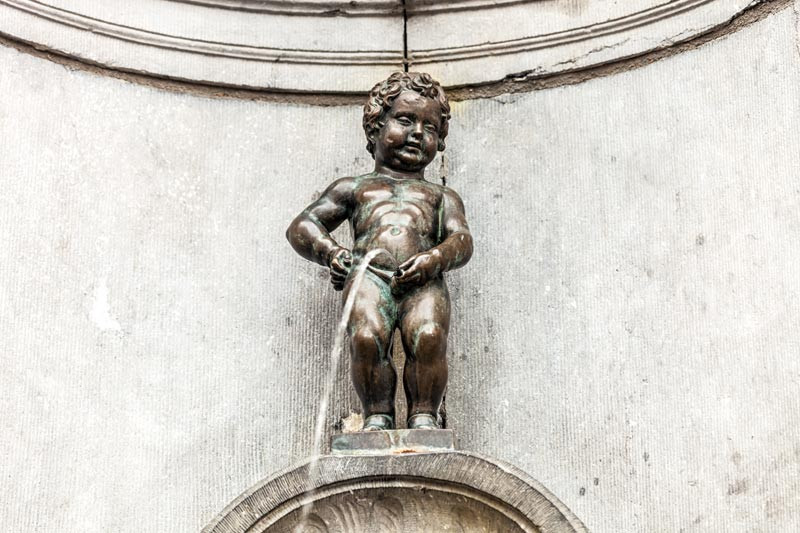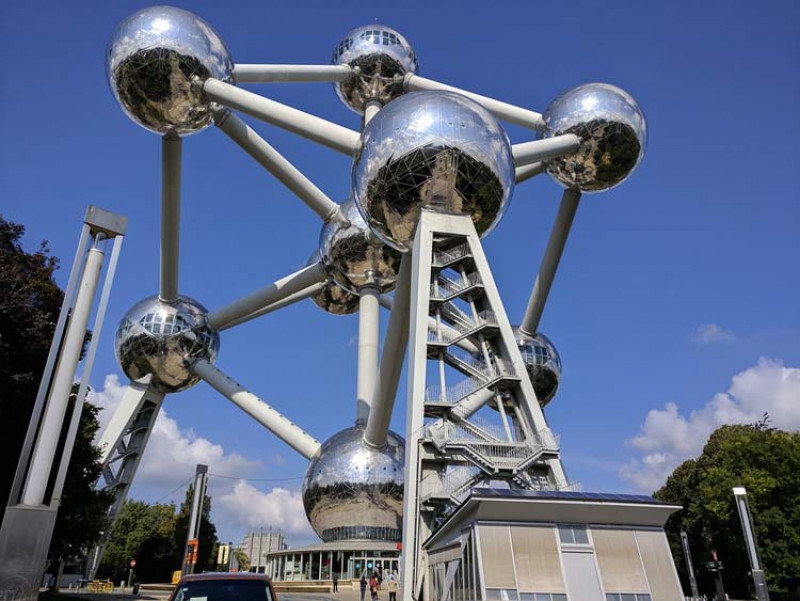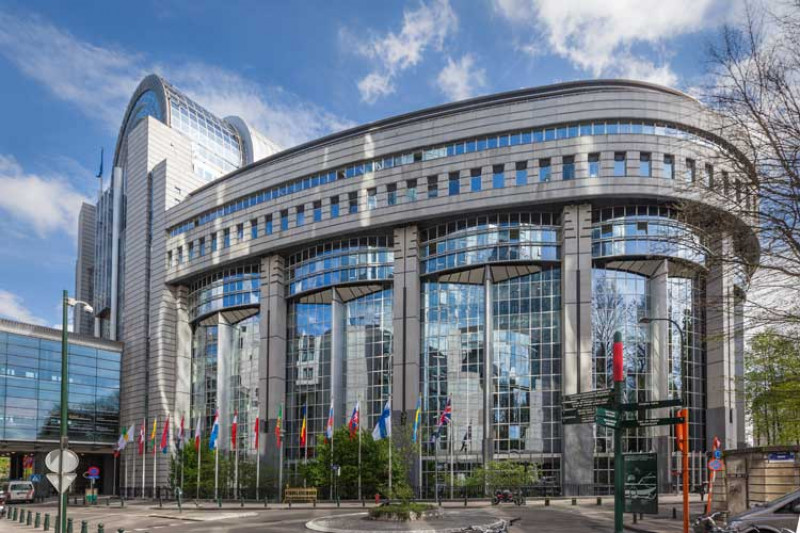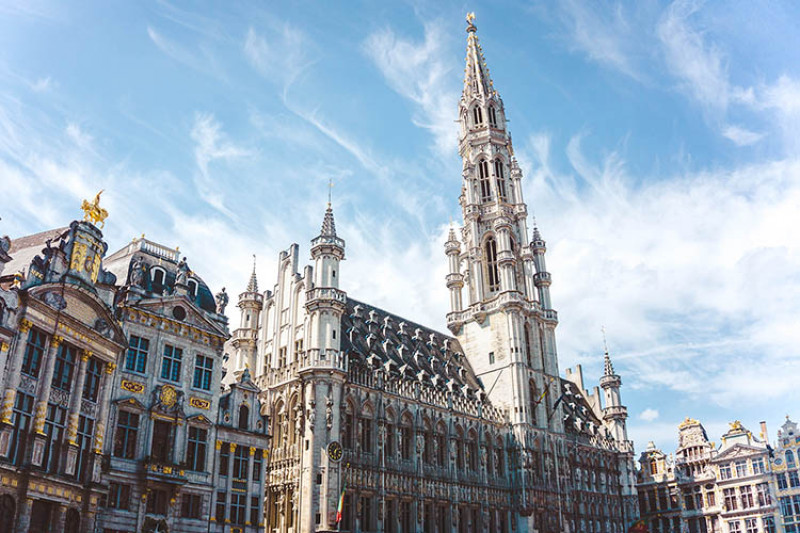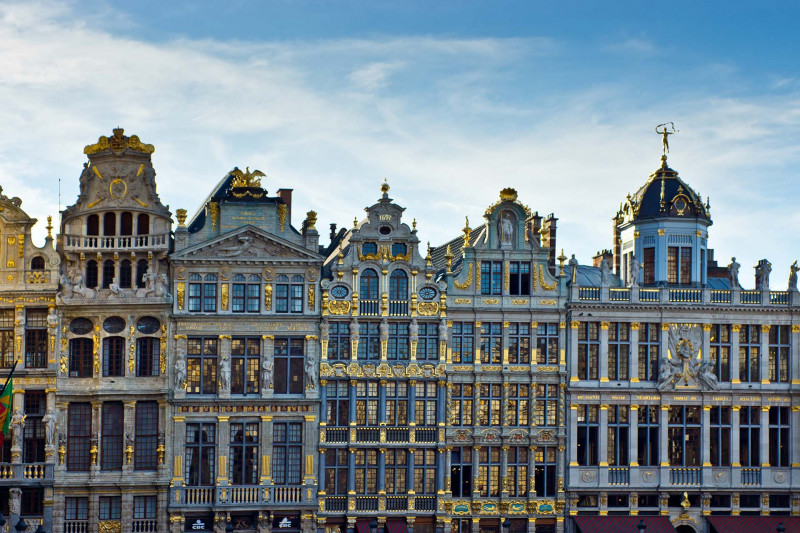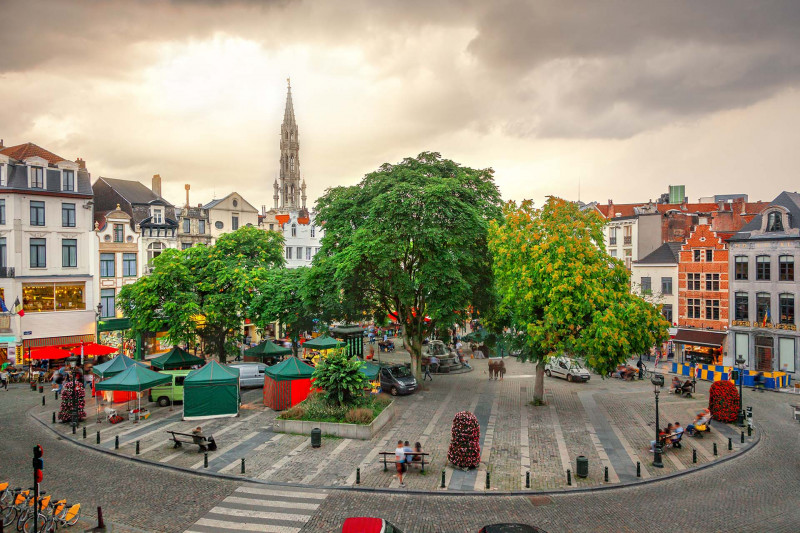'Capital of Europe'
With the European Commission, the European Council, and the European Parliament, as well as the headquarters of the North Atlantic Treaty Organisation (NATO), all based in the city, Brussels is often referred to as the "capital of Europe".
Important political, economic and social decisions are made in the city every day. More than 1,000 governmental and non-governmental international organisations, some 165 embassies and diplomatic missions, the world’s largest international press corps, and over 700 multinational corporations also cluster in and around Brussels.
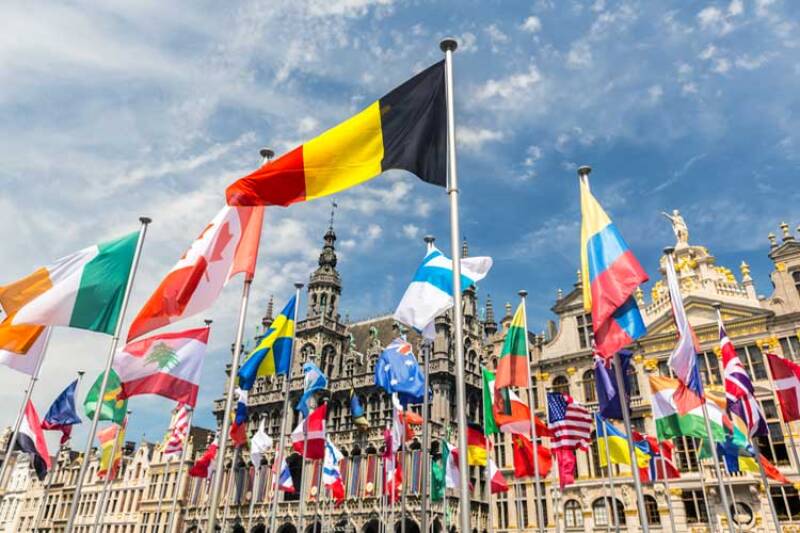
International flags flying over Grand Place
A multicultural city
With a population of just over a million people, Brussels is by no means a sprawling metropolis and remains conveniently ‘small' and accessible. But with more than a third of its inhabitants from outside of Belgium, it's a vibrant and cosmopolitan city with a truly international feel.
Want to keep up to date with what's going on? Bulletin online is a great way to find out what's happening in and around the city.
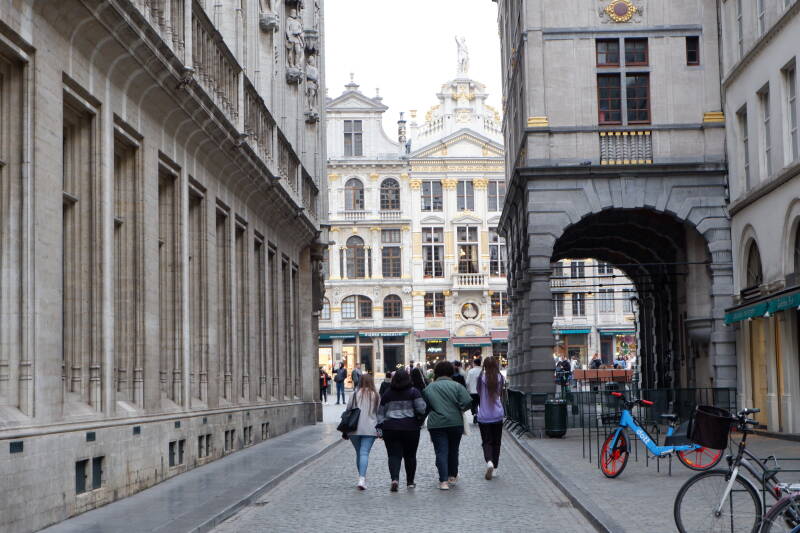
Exploring History in motion
History and heritage
Brussels' rich history stretches back to the Middle Ages and beyond. The remnants of the high rampart walls constructed around the city in 1270 are still visible today. Inside the walls, you can wander through the beautiful market square to see buildings and streets that remain largely unchanged since the 17th century.
The city is internationally known for its connection with the Art Nouveau and Art Deco movements. As well as spectacular architecture and listed buildings, the city houses various collections of modern art within museums and galleries. Don't miss the Bozar Centre for Fine Arts, Fin-de-Siècle Museum and the Brussels Biennial.
If you want to explore further afield, why not take a 40-minute train journey to the beautifully preserved medieval cities of Ghent and Bruges? With most of their medieval architecture still intact, particular highlights include Ghent's Saint Bavo Cathedral and the Church of Our Lady in Bruges.
Food and drink
Belgium is well known for its culinary scene and has one of the highest concentrations of restaurants per person of any city in the world. The ‘Petite Rue des Bouchers’ (street of the butchers) in the medieval centre of Brussels is famous as every building is a restaurant.
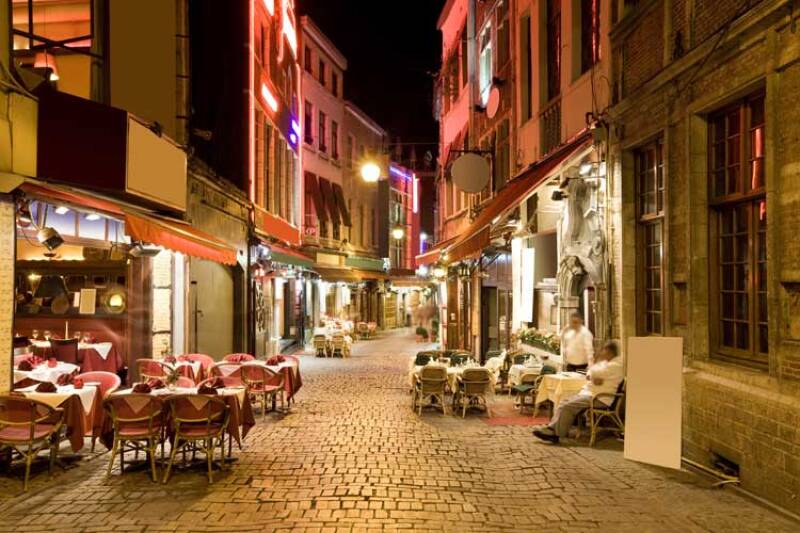
Petite Rue des Bouchers
There's so much more to Belgian cuisine than moules-frites (mussels and french fries) and beer. Other popular Belgian dishes include carbonade flamande (a beef stew with beer), waterzooi (chicken stew), filet americain (raw ground beef served in a sandwich) and lapin à la geuze (rabbit in geuze, a Belgian beer).
For those with a sweet tooth, there are waffles (Brussels and Liège), speculoos biscuits and ice cream (cinnamon based) and croustillons (deep-fried balls of sweet dough). And you can't come to Brussels without trying the luxurious chocolate for which the city is famous the world over.
BSIS Graduate Student Union (BGSU)
The BSIS Graduate Student Union (BGSU) gives our students a voice. As well as organising and coordinating events and initiatives, the BGSU is your representative to the academic and administrative staff of BSIS, to the University of Kent, and to Kent Union in Canterbury.
The size of our school helps to make our student union different from other universities. Every decision is made with a high sense of sharing, solidarity and commitment between students and staff. Our academics are available to answer every question you might have and advise you in the best way possible to suit your career perspectives.
The student union president is elected for the term, assisted by a vice-president. The elected body also consists of a secretary, treasurer, social secretary, sports representative and an academic officer.
Gallery
There are lots of things to do when you're not studying or working. Some of the city's highlights are shown here:






